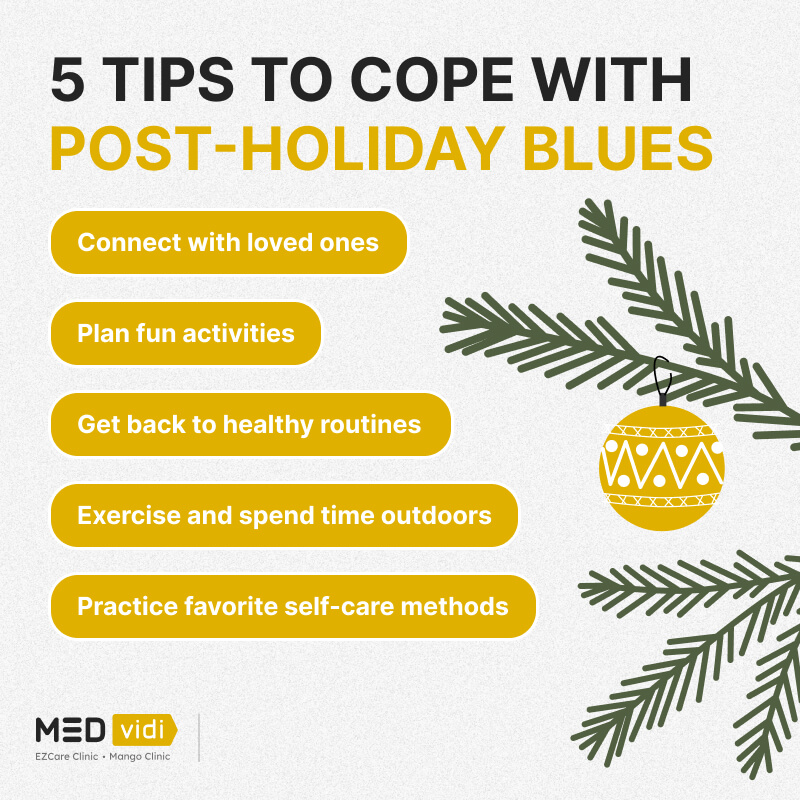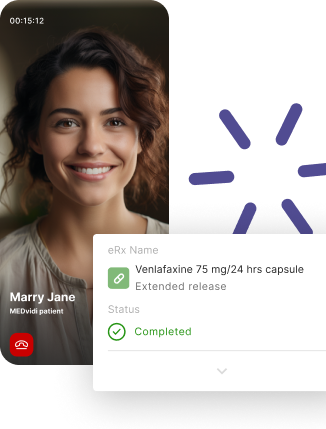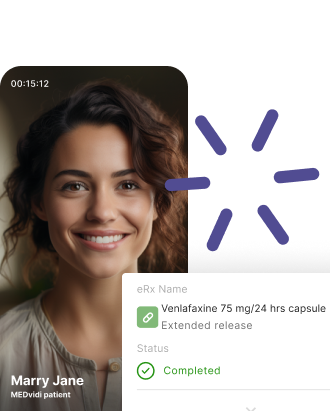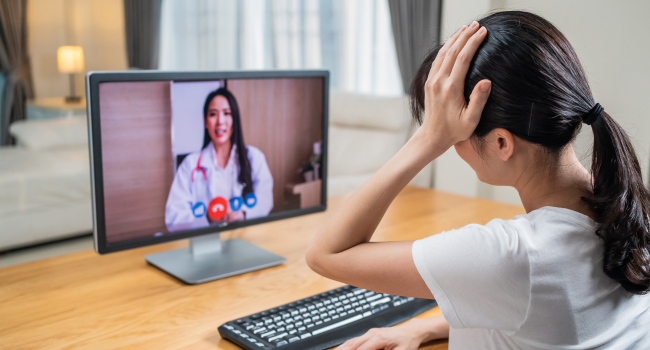Highlights
- Post-holiday blues is not an official mental health diagnosis but a term that describes the low feelings experienced after the holiday season.
- The post-holiday blues are usually triggered by the realization that the festive break is over and the real-life routine is about to begin.
- If your post-holiday blues last more than two weeks or affect your daily functioning, consider consulting a healthcare provider.
The last two months of the year are about winding down and enjoying the holiday season! First, Thanksgiving, then Christmas, and finally, New Year. It’s a time when many people take a break filled with celebration, emotion, and expenses. And just as quickly as it starts, it comes to an abrupt end.
In January, some people experience post-holiday blues, also known as post-Christmas depression. Why does this occur? While there is no single answer, let’s review possible causes of post-holiday blues, common symptoms, and how to overcome them.
What Are Post-Holiday Blues?
You all know that Sunday night feeling — you feel sad and dread returning to reality after a break. Post-holiday blues refer to a similar feeling after the end of celebrations. It involves a mood slump because you know you’ll soon be back to your routine and might be feeling pessimistic about the year ahead.
What Causes Depression After the Holidays?
Often, the holiday cheer is followed by a feeling of ‘now what?’ It may also be a knock-on effect of the Christmas blues. Although the holiday season is usually a happy time,
A few more potential causes of sadness, depression, and anxiety experienced after the holidays are discussed below.
Unmet Expectations
Having unrealistic ideas of an ideal holiday might cause disappointment and exacerbate depressive symptoms when it doesn’t live up to expectations.
Emotional Exhaustion
The excitement of spending time with loved ones during the festive season gives you an emotional high, which drops afterward and results in feeling sad when Christmas is over.
Financial Strain
Back to Work
The thought of going back to work after having some time to relax might trigger depression after the holidays. There are many reasons for this: a lack of fulfillment at work, conflict with colleagues, or excessive responsibilities. However, often, even those who love their jobs have an emotional dip before returning to the grindstone.
Weight Gain
The festive season is a season of overindulgence. The period from Thanksgiving to mid-January contributes to over half of the average annual weight gain that people in the US experience during the year. This might be caused by poor eating habits during the holiday season.
Social Isolation
Many people experience loneliness and feel sad after Christmas, having spent a lot of time with family and friends.
Winter Blues vs Post-Holiday Blues
“Winter blues” is a milder form of
Conversely, post-holiday blues occur after the holidays and are related to sadness, disappointment that the holiday is over, and dread of returning to everyday life.
Post-Holiday Blues: Feelings and Symptoms to Look Out For
The following symptoms of post-holiday blues may occur once the holidays end:
- Low mood
- Anxiety
- Increased irritability
- Feeling of emptiness
- Low energy level
- Insomnia
- Intense nostalgia
- Financial worries
- Loss of appetite
Generally, post-holiday blues last up to two weeks and settle with some self-help strategies. If sadness lasts longer and is accompanied by other symptoms, it’s recommended to see a healthcare provider.
Post-Holiday Blues vs Clinical Depression
Although the signs of post-holiday blues are similar to those of clinical depression, they are not as severe. Clinical depression, also known as
MDD symptoms last more than two weeks and cause significant dysfunction socially and at work. This condition is diagnosed when a person has at least five of the symptoms listed below (one symptom must be number 1 or 2):
- Persistently low or depressed mood
- Decreased interest in pleasurable activities
- Feelings of guilt or worthlessness
- Lack of energy
- Poor concentration
- Increase or decrease in appetite
- Low energy or agitation
- Sleep disturbances
- Suicidal thoughts
If you’re experiencing suicidal or self-harming thoughts and require immediate assistance, contact crisis hotlines, such as 911, 988 Suicide & Crisis Lifeline (toll-free), or Samaritans (116-123 or via chat).
Summary table: Clinical depression versus post-holiday blues
|
Major Depressive Disorder |
Post-Holiday Blues |
|
|
Classification |
An official mental health condition diagnosis |
A term for temporary feelings of sadness, anxiety, and dread |
|
Time present |
Two weeks or more |
Two weeks or less |
|
When is it present |
Any time of the year |
Occurs post-holiday season |
|
Daily functioning |
Negatively affects regular routine with poor functioning at home or work or both |
Follows normal routine |
|
Treatment |
Usually requires therapy, medication, or both |
Passes automatically or with self-help strategies |
How to Get Over Post-Holiday Blues
It is possible to get over holiday blues with some proactive strategies. In fact, many of these post-holiday season ideas might form part of New Year’s resolutions. Importantly, do not set unrealistic expectations; not achieving goals might prolong and worsen your low mood and anxiety.
Here are ten self-help tips to help you get through January and overcome post-holiday blues.

Practice Self-Care
To get over post-holiday blues, do something that will lift your spirits and relax you. Take some me-time to restart your favorite hobbies, take long baths surrounded by candles, read books, or binge-watch a TV series. If Christmas didn’t drain your bank account, treat yourself to a massage or facial.
Create a Routine
It’s natural to feel sad when Christmas is over because you’re accustomed to a more relaxed holiday schedule. That is why it is essential to get back into your routine, set alarms and reminders for waking up and bedtime, and use a calendar to structure your days.
Connect With Loved Ones
The holiday season is filled with get-togethers and quality time with loved ones, and many people get depressed after the holiday. So, keep in touch with friends and family to avoid loneliness. This way, you’ll build new memories instead of feeling nostalgic about the holidays.
Try Something New
Feel good by trying something new. Choose activities you’ve always been curious about that will continue the adventurous and exciting holiday mindset and feeling, easing you into the real world.
Schedule Time for Fun
Holidays are usually filled with out-of-the-ordinary activities, so another mood boost is to continue making time for things that make you smile. There is proof that
Set a Financial Plan
If you find yourself cash-strapped on New Year’s Day, writing a budget plan may help you overcome the difficult time while waiting for your first paycheck.
Be Physically Active
Studies suggest that
Get Enough Sleep
During holidays, your sleep patterns may be disrupted. Temporarily, this won’t be a problem, but getting enough sleep is essential for your mental health, so it’s important to return to your sleep routine as soon as possible.
Avoid Alcohol and Drugs
Using alcohol or other substances as an attempt to cope with sadness won’t help but instead will make depression and insomnia worse. Thus, it should be avoided.
Journaling
Writing down your feelings helps reduce stress because you can understand why you feel the way you do. When you see the reasons on paper, the solutions may become more obvious. For example, “I’m feeling sad because I miss my friends” or “I’m anxious because I don’t have enough money for January” give you clear starting points.
Does self-help seem not to be enough?


When to Seek Help
Whether you call it post-holiday blues, post-holiday syndrome, Christmas blues, or post-holiday depression, if your low mood:
- lasts more than two weeks or
- starts to affect your social life or work performance,seek help from a healthcare professional as it is likely that you can develop clinical depression.
Treatment Options for Clinical Depression
To get you over the hurdle, your healthcare provider will provide treatment advice personalized to your needs, including therapy, medication, or both. A
Psychotherapy
Interpersonal Therapy
This type of talk therapy improves mood by helping you work on and improve interpersonal relationships with colleagues or loved ones.
Cognitive-Behavioral Therapy
Another type of talk therapy that helps you identify your emotions and change how you act in response to different situations. This results in positive behavior changes related to those emotions.
Medication
There are many medication options for MDD. However, the
- Fluoxetine
- Sertraline
- Citalopram
- Escitalopram
- Paroxetine
- Fluvoxamine
You don’t need to worry about the other classes of antidepressants, as your doctor will know what’s best. If they decide you should get prescribed antidepressants as a part of your depression treatment plan, they’ll tell you about the most suitable options as well as their pros and cons in your particular situation.
In Conclusion
Experiencing post-holiday blues is common, but it is essential to recognize it and take action to get over it timely. Getting help early can help you avoid slipping into clinical depression. If you need professional help, consult a licensed medical provider at MEDvidi; start by booking an online appointment today to prioritize your mental health.











